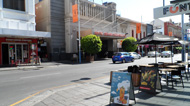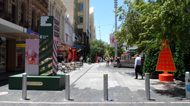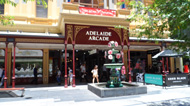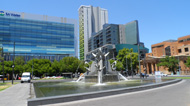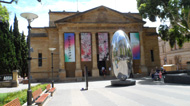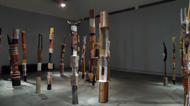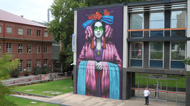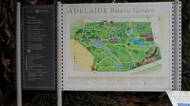Hotel Grand Chancellor**** |
Rundle Mall |
Adelaide Arcade |
Victoria Square |
Adelaide |
Adelaide is the capital of the State of South Australia, and with 1,326,354 inhabitants in 2016, is the most populous town of the country. The city is named after Adelaide of Saxony, wife of William IV and queen consort of the United Kingdom from 1830 to 1837. It is located on the southern coast of Australia and overlooks the Gulf of St Vincent (Indian Ocean). Of all the Australian capitals, Adelaide is the driest. Precipitation is light and infrequent in summer, where sometimes it does not rain for months. By contrast, the weather in winter is fairly uniform, and June is the wettest month of the year, with an average of 80 millimeters of water. In Adelaide there are on average three days a year in which the temperature reaches or exceeds 40 ° C. The European settlement in South Australia had its origins from the colonization carried out by free settlers proposed by Edward Gibbon Wakefield. He advocated colonization by ordinary citizens, the sale of land in small lots (at a fixed and moderate price, the proceeds of which would be used to support further colonization), and the possibility of having some form of self-government as well. His ideas led to the founding of the South-Australian Association in 1830. South Australia was officially colonized as a British province on December 28, 1836 (date commemorated today as a public holiday, Proclamation Day). The site on which the new city would arise was inspected by Colonel William Light, the first surveyor general of South Australia. Light chose, not without opposition, a place located on an elevation near the Torrens River, which became the main source of water for the newly born city. The urban model on which the city was set was Catania. The "Vision of Light", as it was baptized, meant that Adelaide's initial design required little modification when the city grew and prospered. Adelaide was founded as the center of a colony of free immigrants, with the promise of civil liberties and protection from religious persecution; its history therefore considerably differs from the "penitentiary" history of other major Australian cities such as Sydney and Hobart. Coincidentally, the name Adelaide derives from a word of Germanic origin which means "of noble birth". Adelaide is often called the "City of Churches", although this is a reflection more of ancient Adelaide than of the current situation. A popular rumor states that for every church that was built, a bar was also built for the needs of the less pious. Since its origins, Adelaide has attracted immigrants from many nations, especially German immigrants who fled religious persecution. Immigrants brought with them parts of vine trees that allowed to found the famous wine production areas of Barossa Valley. After the Second World War, Italians, Greeks, Dutch, Poles and of all possible European nationalities moved to Adelaide to start a new life. A further flow came from Asia after the Vietnam War. All these cultures merged together to form a varied and rich culinary and a brilliant restaurant culture. Much of the area around Adelaide has been dedicated to the cultivation of vines and the districts where wine is produced (such as Barossa Valley, for which Adelaide and South Australia are well known all over the world) are a short distance from the border of the city. Adelaide's cultural life flourished in the 1970s under the leadership of Don Dunstan, who removed some of the major Puritan restrictions on cultural activities that were widespread across Australia. The city is currently home to numerous festivals, including the Barossa Music Festival, the Adelaide Festival of Arts (Adelaide Art Festival), the Adelaide Film Festival, the Adelaide Festival of Ideas (Adelaide Ideas Festival) and the Fringe Festival. The WOMADelaide festival, Australia's leading world-class musical event, is currently held annually in the scenic landscapes around the Adelaide botanical park, emphasizing Adelaide's vocation for the arts, which has taken on a prevalent role since Don's Dunstan days. The city is home to the University of South Australia, the University of Adelaide and Flinders University. In addition, the main private US university, Carnegie Mellon, has a campus in Adelaide specializing in computer science and political science, which offers both Australian and US degrees. This institution attracts students from both Australia and around the world, further increasing Adelaide's international recognition as a city for education. Adelaide's city center is somewhat limited and in half an hour you can walk from the west terrace to the east terrace. The city center is represented by Rundle Mall, where most of the shops, restaurants and bars are concentrated. Near Victoria Square is the Central Market Arcade with fruit, vegetables, meat, fish and other products. The Botanical Garden of Adelaide is magnificent with a variety of plants. The airport is only 8 km from the city center. The taxi from the airport to Hotel Chancellor costs
AU$ 28/10’. I used the UBER service which works very well spending from Hindley street (Hotel Chancellor)
to the airport
AU$ 16.50.
